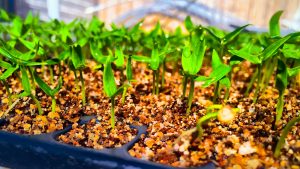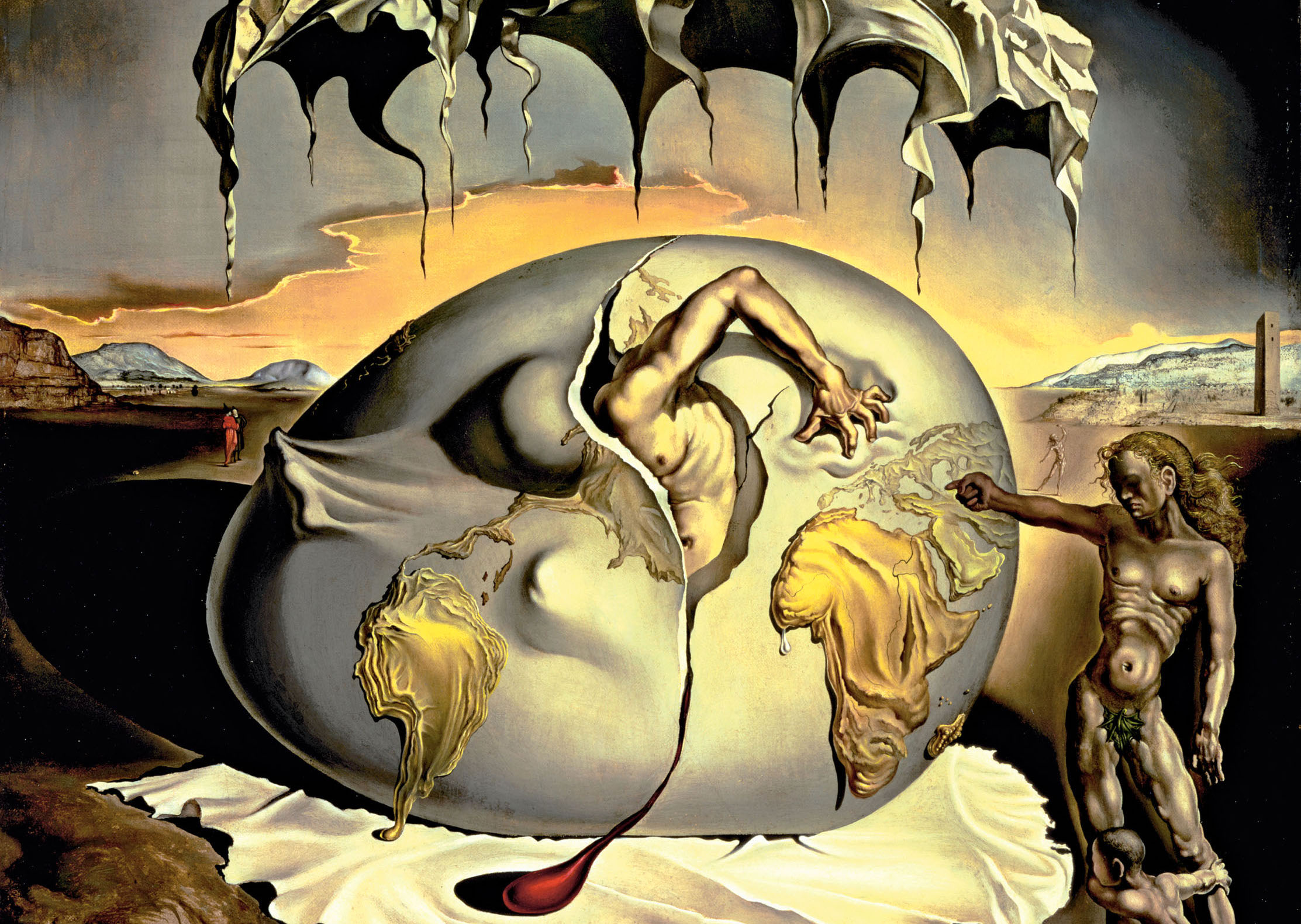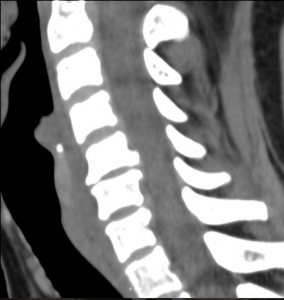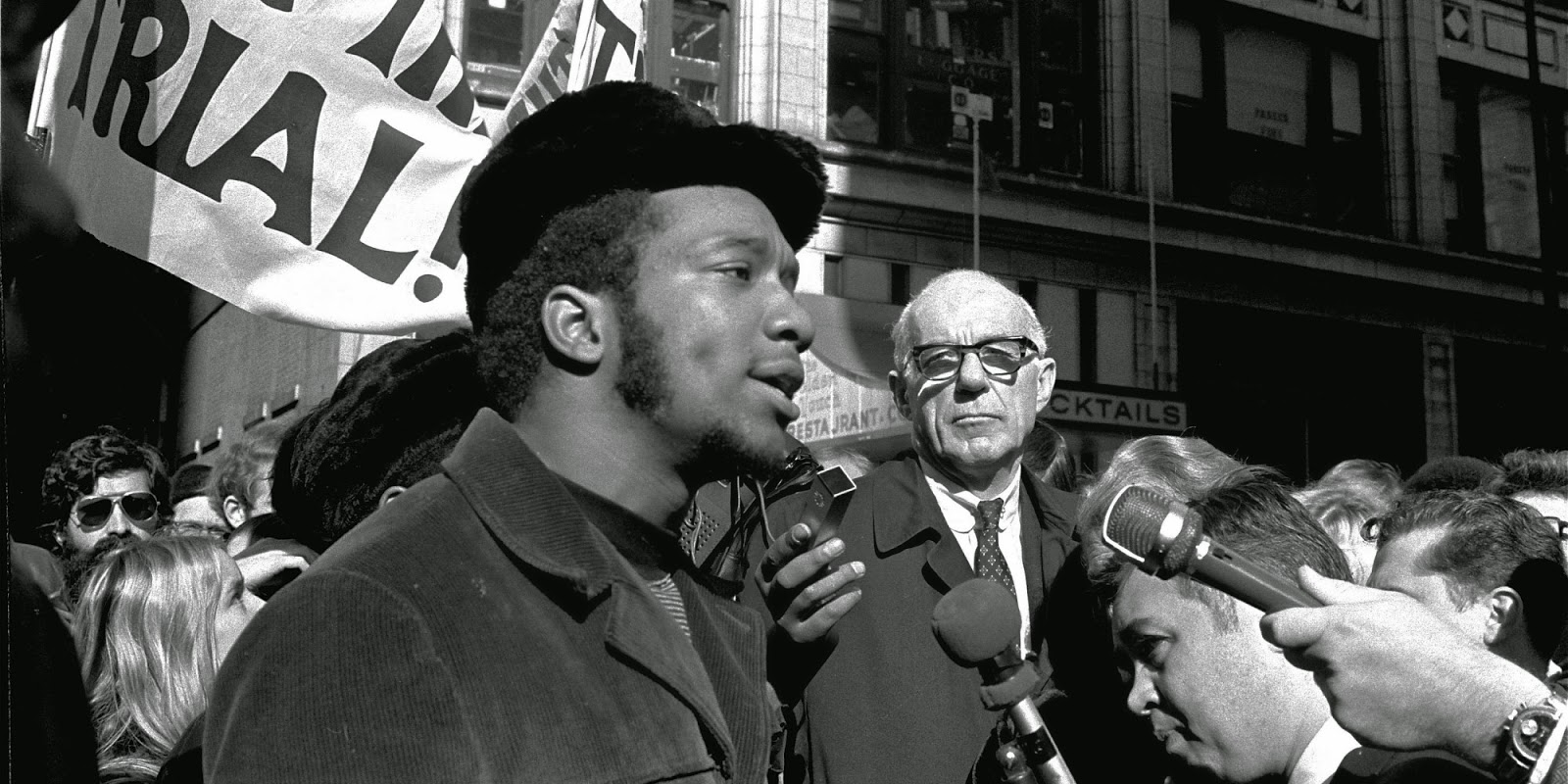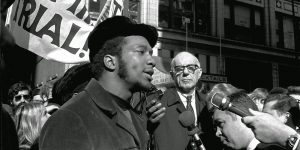It is Bitter Tea That Involves You So: A Sermon on Hope
In a minute there is time for decisions and revisions which a minute will reverse.
From Page 37 of the Pricipia Discordia, 5th edition:
When Hypoc was through meditating with St. Gulik, he went there into the kitchen where he busied himself with preparing the feast and in his endeavor, he found that there was some old tea in a pan left standing from the night before, when he had in his weakness forgot about its making and had let it sit steeping for 24 hours. It was dark and murky and it was Hypoc’s intention to use this old tea by diluting it with water. And again in his weakness, chose without further consideration and plunged into the physical labor of the preparations. It was then when deeply immersed in the pleasure of that trip, he had a sudden loud clear voice in his head saying “it is bitter tea that involves you so.” Hypoc heard the voice, but the struggle inside intensified, and the pattern, previously established with the physical laboring and the muscle messages coordinated and unified or perhaps coded, continued to exert their influence and Hypoc succummed to the pressure and he denied the voice.
And again he plunged into the physical orgy and completed the task, and Lo as the voice had predicted, the tea was bitter.
When we react to the next thing, we risk being trapped in the passivity of our moment. Life is one thing after another, but lived that way it is short, dark, and bitter. To live in a longer time and a greater frame of reference requires the practice of hope.
People often mistake hope for a feeling, but it’s not. It’s a mental discipline, an attentional practice that you can learn. Like any such discipline, it’s work that takes time, which you fail at, succeed, improve, fail at again, and build over years inside yourself.
The thing people think of as the feeling of hope follows the practice. Just as a body feels weak and stressed when it gets no exercise, a soul feels empty, dark, and small when there is no practice of hope. Just as exercise can be hard in the beginning, and painful when you are pushing the body to build more strength, the practice of hope pushes you emotionally and spiritually, sometimes to exhaustion, but always knowing you’ll wake up tomorrow healing, and with a stronger soul.
 Hope isn’t just looking at the positive things in this world, or expecting the best. That’s a fragile kind of cheerfulness, something that breaks under the weight of a normal human life. To practice hope is to face hard truths, harder truths than you can face without the practice of hope. You can’t navigate dark places without a light, and hope is that light for humanity’s dark places. Hope lets you study environmental destruction, war, genocide, exploitative relations between peoples. It lets you look into the darkest parts of human history, and even the callous entropy of a universe hell bent on heat death no matter what we do. When you are disciplined in hope, you can face these things because you have learned to put them in context, you have learned to swallow joy and grief together, and wait for peace.
Hope isn’t just looking at the positive things in this world, or expecting the best. That’s a fragile kind of cheerfulness, something that breaks under the weight of a normal human life. To practice hope is to face hard truths, harder truths than you can face without the practice of hope. You can’t navigate dark places without a light, and hope is that light for humanity’s dark places. Hope lets you study environmental destruction, war, genocide, exploitative relations between peoples. It lets you look into the darkest parts of human history, and even the callous entropy of a universe hell bent on heat death no matter what we do. When you are disciplined in hope, you can face these things because you have learned to put them in context, you have learned to swallow joy and grief together, and wait for peace.
The first thing to understand about Hope is that it is always a function of time. For hope’s faithful disciple, contemplation of time is a deliberate process. Whether we choose to think of the next few minutes or few millennia, or the past week or the dawn of multicellular life, the practitioner of hope chooses a time frame that compliments their philosophical and instrumental goals. If you want to think about the environment, you don’t just think about what the news says is happening now, you consider the history of the planet, how human forms change over centuries, and what it would mean to deliberately terraform the anthropocene towards the increase of life and peace. You would also think of the last 12 or 50 thousand years, to put yourself in the right context. If you want to consider exploitative relationships, you look both at the relationships in your own life, and how humanity has related to itself since we encountered the other hominids on our walks out of Africa.
Look back to the beginning, back to our mitochondrial mother in Africa, we can see that we are the murdering African hominid. Everywhere we’ve lived, the megafauna, the forests, our hominid cousins, each other, we have killed it all with wild abandon. Everywhere we’ve walked we have left a gray-brown swath of ash in our wake. Accepting that this is part of our nature as humans is key to hope, because your practice of hope cannot be so fragile that understanding the truth can wreck it. Hope requires that you study these terrible truths, and also the truths that the murdering hominid is the first species that learned to love the world. We were the first to speak, and the first to be struck dumb by the beauty of the sunset. We were the first to learn to fear time, and the first to love what we feared. We built special machines to look out into the universe, to find uncountable galaxies, and fall in love with them. The murdering hominid is also the creature that found the atom, came to understand the mechanics of life, that prayed to the planets and stars. We became the conscious tip of the universe, contemplating itself. You must understand that we, the murdering African hominid, we are holy. The very idea of beauty and holiness came from this murdering hominid, and all those qualities repeat themselves fractally in each of its tiny atomic members. The murder and hatred and pain coexists with the wonder and love and genius in all of our tiny and soft hominid bodies. And here, trapped in the progress of history, the only difference between the light and dark is the next choice you make, and the next, and the next, and the next choices we make together as a species.
We could fail each other horribly. We could fail this tiny and beautiful gravity well of life that gave birth to us. And sometimes it seems we fail so much, how could we not? But little failures don’t tell us about big ones. Our great successes are made of billions of little failures, followed by failures that weren’t as bad, over time. To only focus on the little failures, that is to be involved with bitter tea. To fight people on social media, to look at the breaking news only as long as it takes for the next news to break, to decide nothing I do or you do could make a real difference in the world, that is bitter tea.
This is when we must practice our hope, and there is much to practice our hope on.
We’ve worked together to reduce or solve problems, like global emissions reductions, ozone healing, and rain acidification. We’ve eliminated diseases, solved navigation, and learned to predict the weather.
There’s so many things we could do! Seaweed farms could provide a key part of the food supply for billions, sequester carbon, and pH balance the ocean. We could use renewable energy at the poles to freeze carbon out of the air. We could provide communication and education for all through a global computer network. We could create global universal healthcare, we could educate every person on the Earth, and call them valuable. We can, and have, learned to live differently, and we will again in ways we can’t imagine now.
Heck, We are ahead of where we thought we’d be by now in the switch to renewable energy. Global poverty is falling at a rate no one dreamed of when I was a child.
Still, we have so many crushingly difficult problems. No one solution will work alone. There will be more answers, there will be dozens of answers, and billions of answers. There will be billions of mistakes along the way, too.
We need coordinating forms better than democracy, and we should be dreaming of those. Dreaming is our duty in uncertain times, though it gets treated as useless and frivolous by those involved in only the moment. But times of political crisis are the moments most in need of utopias.
 Consider deeper time, and you’ll see what we call fascism now used to be so ubiquitous it didn’t need a name. It was simply obedience to the order of a society. Societies before the 20th century were so genocidal that they didn’t need a name for it either, until we spread the idea in the 18th and 19th century that killing people was bad instead of glorious. But once a thing is named, we can see it. It’s so painful to understand the contrast, like Adam and Eve realizing that they were naked and noticing it was snowing.
Consider deeper time, and you’ll see what we call fascism now used to be so ubiquitous it didn’t need a name. It was simply obedience to the order of a society. Societies before the 20th century were so genocidal that they didn’t need a name for it either, until we spread the idea in the 18th and 19th century that killing people was bad instead of glorious. But once a thing is named, we can see it. It’s so painful to understand the contrast, like Adam and Eve realizing that they were naked and noticing it was snowing.
We can improve on mere comprehension of our problems. We can love in the face of intransigence, and endure in our hope. We can learn to use humor in the face of tragedy, staying alive and vital when it might otherwise seem impossible. We can laugh at the ridiculousness of the situations that make our grief. Perspective feeds the soul every bit as much as sleep. We can write blog posts about the way it ought to be, and argue the nuances of a thousand utopias as we do the work of improving this imperfect world.
We can learn to provide for those who hate us as well as love us, merely because they are human, and alive, and all life is worthy of honor and respect. We could seek to minimize suffering and create respect, through universal education, a goal we are so much closer to than we were when even I was a child. In the 20th century, we about flipped the statistics on literacy, from 20 to 80%. But in absolute numbers? Billions of souls read and write, now. They hold time in their minds in ways that our ancestors couldn’t imagine. They know what stars are made of, and what the atom is. Our children are wiser than the wisest of the ancient philosophers. We’re building wonders. Our energy efficiency per person, given what we can do now, rises in a hockey stick, like our absolute literacy did.
We know how to destroy ourselves and need to learn not to, but we have the tools now. It will require wisdom rather than only knowledge. We will need to see ourselves as a deliberate and wise species to do the next things we need to do.
To think in deep time isn’t just looking backwards, but forwards, because hope is about writing the future, not the futility of editing the past. We are in the old age of life on our little watery pearl of a planet. We started around 4 billion years ago, but only have about 500 million years before complex life becomes precarious under an expanding red sun. It sounds like a long time, but if we want to escape our sun’s death, it’s best we learn these lessons sooner rather than later. I’m pretty sure interstellar life takes time.
But let’s bring it back down to Earth. The discipline of hope doesn’t begin in galactic scale. It begins in kindness, in seeing the humanity in front of you, and in yourself. The first timescale of hope is the minute, and then the day. What actions of hope can I practice today? Is it taking time to comfort a stranger, or sometimes to lovingly chastise a friend, because you believe they will become a better person? Hope comes from looking for places to serve something larger than yourself. It comes from cultivating gratitude. Hope teaches you to put the world before yourself, but in doing so, hope teaches you an unfragile happiness in loving the world.
 You live in an age of wonders unlike any that came before now. You can’t count them all, you’d do nothing else and then die of old age. But you can take deliberate time to note the wonders of your life. The sorrows note themselves, don’t worry about them. Next time you take an ibuprofen, or eat a fruit salad, or look down and see the curve of the world below you, and all the astounding things we built on it, take note how impossible all these things are. Next time you touch a book and exercise having a mind that can decode it, next time knowledge and wisdom have transcended time and space to change you, or you’ve used that capacity in others to create expressions which change them, take note that power and beauty. As you learn to let it all in, it can be a bit scary. The wonders of the world are innumerable and hard to think through, and it’s work to let it all in. And when you do, you can see the blood in it as well as the beauty. The blood is always there, as is the beauty. But this practice, this wonder and hope, is how better worlds are built. It’s how we got here, when we started off so rough, so mean, so difficult and murderous a hominid.
You live in an age of wonders unlike any that came before now. You can’t count them all, you’d do nothing else and then die of old age. But you can take deliberate time to note the wonders of your life. The sorrows note themselves, don’t worry about them. Next time you take an ibuprofen, or eat a fruit salad, or look down and see the curve of the world below you, and all the astounding things we built on it, take note how impossible all these things are. Next time you touch a book and exercise having a mind that can decode it, next time knowledge and wisdom have transcended time and space to change you, or you’ve used that capacity in others to create expressions which change them, take note that power and beauty. As you learn to let it all in, it can be a bit scary. The wonders of the world are innumerable and hard to think through, and it’s work to let it all in. And when you do, you can see the blood in it as well as the beauty. The blood is always there, as is the beauty. But this practice, this wonder and hope, is how better worlds are built. It’s how we got here, when we started off so rough, so mean, so difficult and murderous a hominid.
As hard as it is to be human looking over the world at the beginning of the 21st century, I have often thought that it makes sense that we practice terraforming on the easiest planet we could ever possibly practice it on before we leave. And that we learn how to live in a massively coordinated society of super-powered and psychic beings before we carry life out into vast and empty distances of the Milky Way. I’ve thought: these tasks are so enormous, and so miraculous, of course we’re going to suck at them in the beginning. That’s part of learning to be what we will be, what we decide to be, in the next week, or year, or 500 million years.
Everyone gets involved in bitter tea sometimes, the physical and mental orgy of picayune matters that happen to cause big emotions. But with practice, bitter tea can involve us less, and we can get to the impossible and glorious task of being human.
Once when I was a child, my mother put all of this to me another way: You don’t work for the light. You work, and one day you find the light has been shining on you.
My work for Emptywheel is supported by my wonderful patrons on Patreon. You can find out more, and support my work, at Patreon.
(And if you do support my work, also consider supporting the great work of everyone else here on Emptywheel. More info in the sidebar →)


